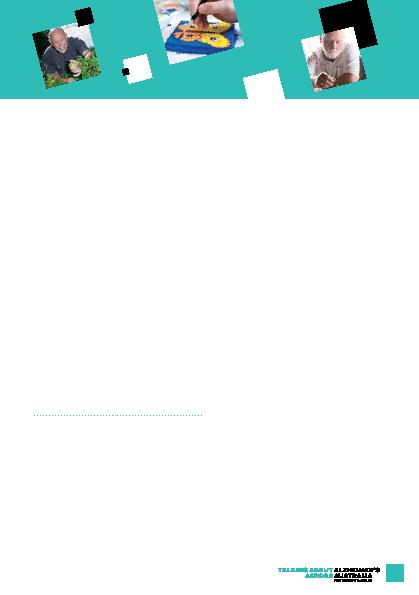
something familiar to them. Unfortunately,
the risk of getting lost is a real issue for many
people living with dementia. Evidence shows
that if a person with dementia is missing for
more than 12 hours the chances that they
will be found seriously injured or dead is
dramatically increased. Experiencing a missing
person situation can cause premature aged
care admissions due to family/carer stress
and perceived future risk to the person. The
risks associated with getting lost can be
significantly reduced for many people with
dementia using assistive technology. The
use of this technology can help maintain
independence and freedom for many people
living with dementia to walk autonomously
and to continue to enjoy activities within the
community.
over 3 years with many positive results for the
large number of families that have accessed
this innovation service. This presentation
will provide the opportunity to share the
experiences of Safe2Walk clients and will
focus on how Safe2Walk has promoted social
inclusion within their lives and supported a
sense of well-being and independence.
with the opportunity to draw out their inner
experience. This presentation outlines the
processes, benefits and limitations of this
therapeutic model for carers of people with
dementia.
fraught with challenges yet sprinkled with
moments of beauty. Carers of people with
dementia are at increased risk of depression,
anxiety, grief and loss which impact on their
capacity to provide support on a daily basis. In
service provision we seek effective strategies
to support carers to maintain their health
and wellbeing and live in peace with their
experience and the decisions they are required
to make.
one art therapy by a qualified art therapist to
carers of people with dementia in the Coffs
Harbour, Nambucca and Bellingen Local
Government Areas. The opportunity to make
images or create objects within the therapeutic
setting can often lead to fresh insights,
release of stress or tension, greater clarity and
resolution for the client. Art therapy does not
rely on existing artistic ability but, through a
person-centred approach, supports clients to
express themselves authentically and in a way
which is connected with their experience.
consented to inclusion of their images,
experience and evaluation of art therapy
sessions in the Alzheimers Australia National
Conference. These clients will be de-identified
and shared as case studies to demonstrate the
effectiveness of art therapy as a therapeutic
model for carers of people with dementia.